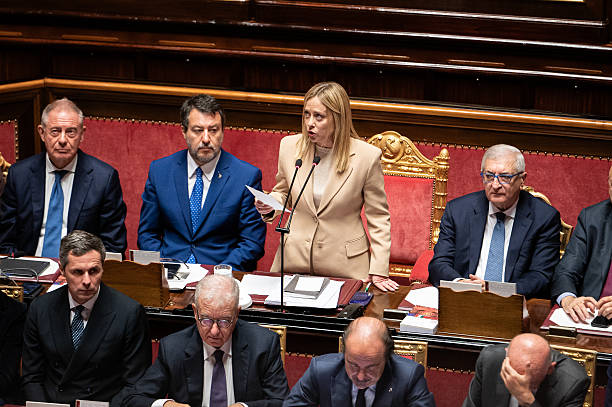Giorgia Meloni raises the tone and relaunches on several fronts: biofuels and climate, foreign policy and security. The Prime Minister claims the European openings obtained “also thanks to our insistence”, attacks the “ideological approach” of Brussels and reiterates the conditions for the recognition of the State of Palestine and for the stabilization of Gaza. About Ukraine, he reiterates: “we will not send soldiers”.
Meloni: “Von der Leyen’s position on biofuels is good.”
We have to remain open to all solutions, as well as the sustainable biofuels, which can contribute to decarbonisation and which must be permitted even after 2035″, Meloni said in the Chamber. The Prime Minister claimed a diplomatic success, “finally, also thanks to our insistence on this point and on our ability to bring other important European partners to these positions, we note a first opening by President Ursula von der Leyen“The letter sent by the Commission President to EU leaders, the Prime Minister emphasizes, “explicitly refers to this possibility.”Applying this principle – explains Meloni – would mean ensure the survival of the internal combustion engine, fueling it with alternative and sustainable fuels, and thus saving a large part of our automotive and gas supply chain.”
Meloni challenges the EU on climate: “Enough with the green follies.”On the Green Dea frontThe Prime Minister does not mince her words: “We want to abandon the ideological approach” and “Italy will not be able to support the proposed revision of the climate law unless there is a change of approach.”Enough with the green follies“, emphasizes Meloni, who calls for a “robust review clause of the climate objectives established by the European Climate Law” to verify, within five years, “what has worked and what hasn’t.”
In the Italian view, “there cannot be only electrification for the future of the car, let alone that of heavy transport or industry, starting with steel, glass, and cement.” Meloni calls for “technological neutrality in all EU climate legislation” and adds, “no transition is truly possible without allocating adequate resources.”

